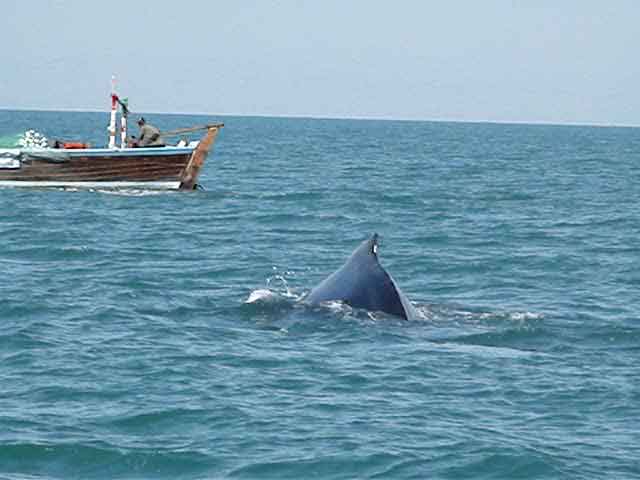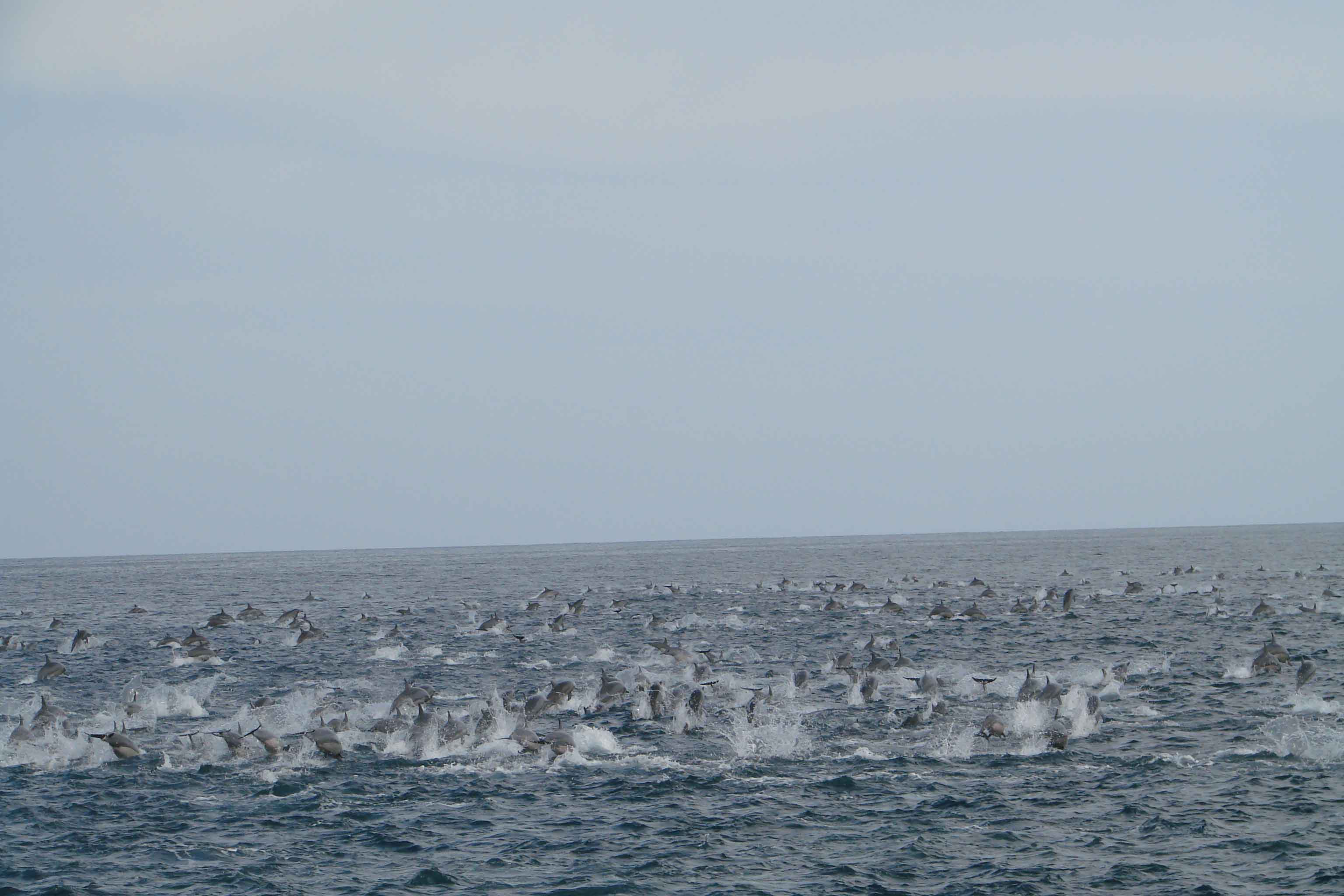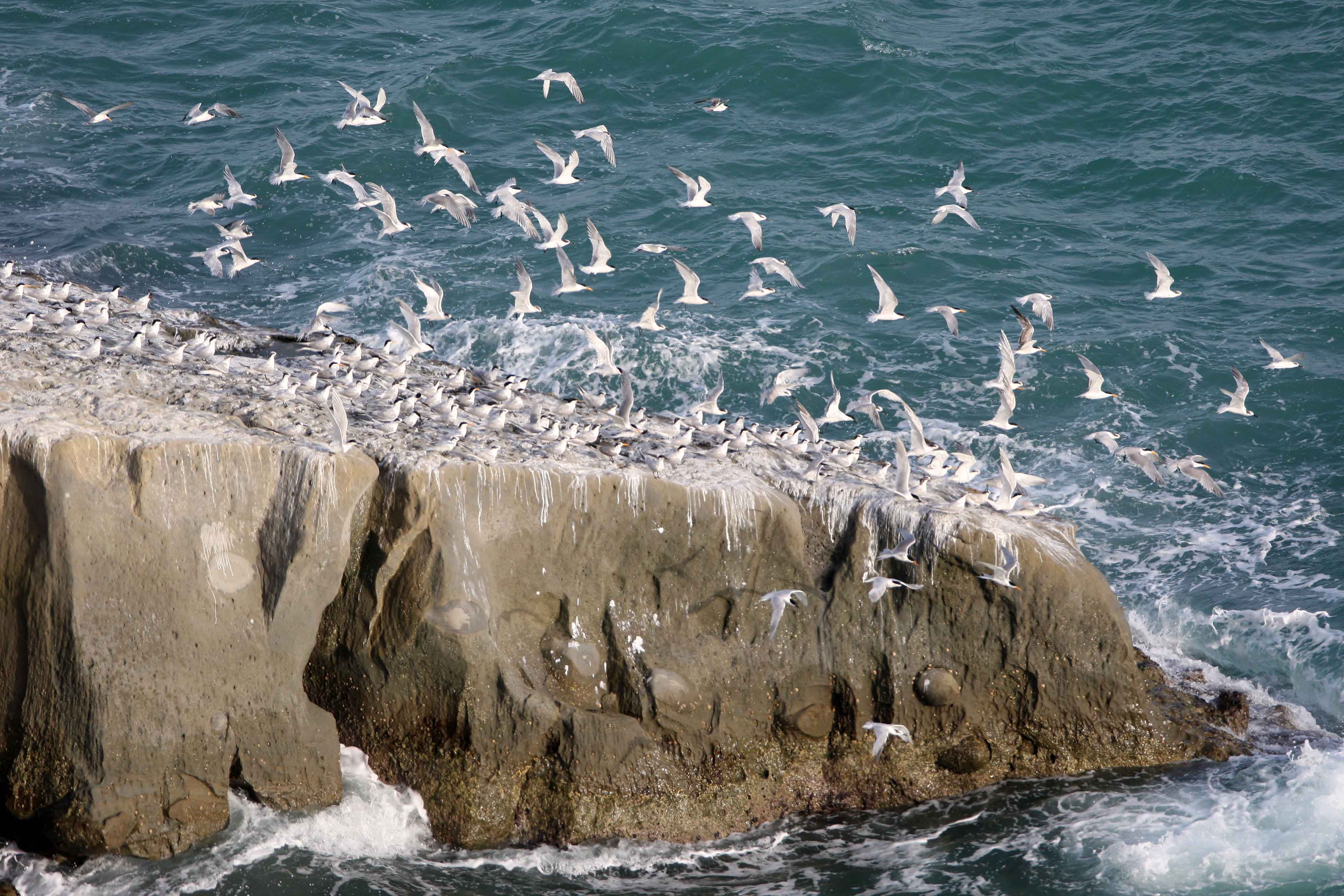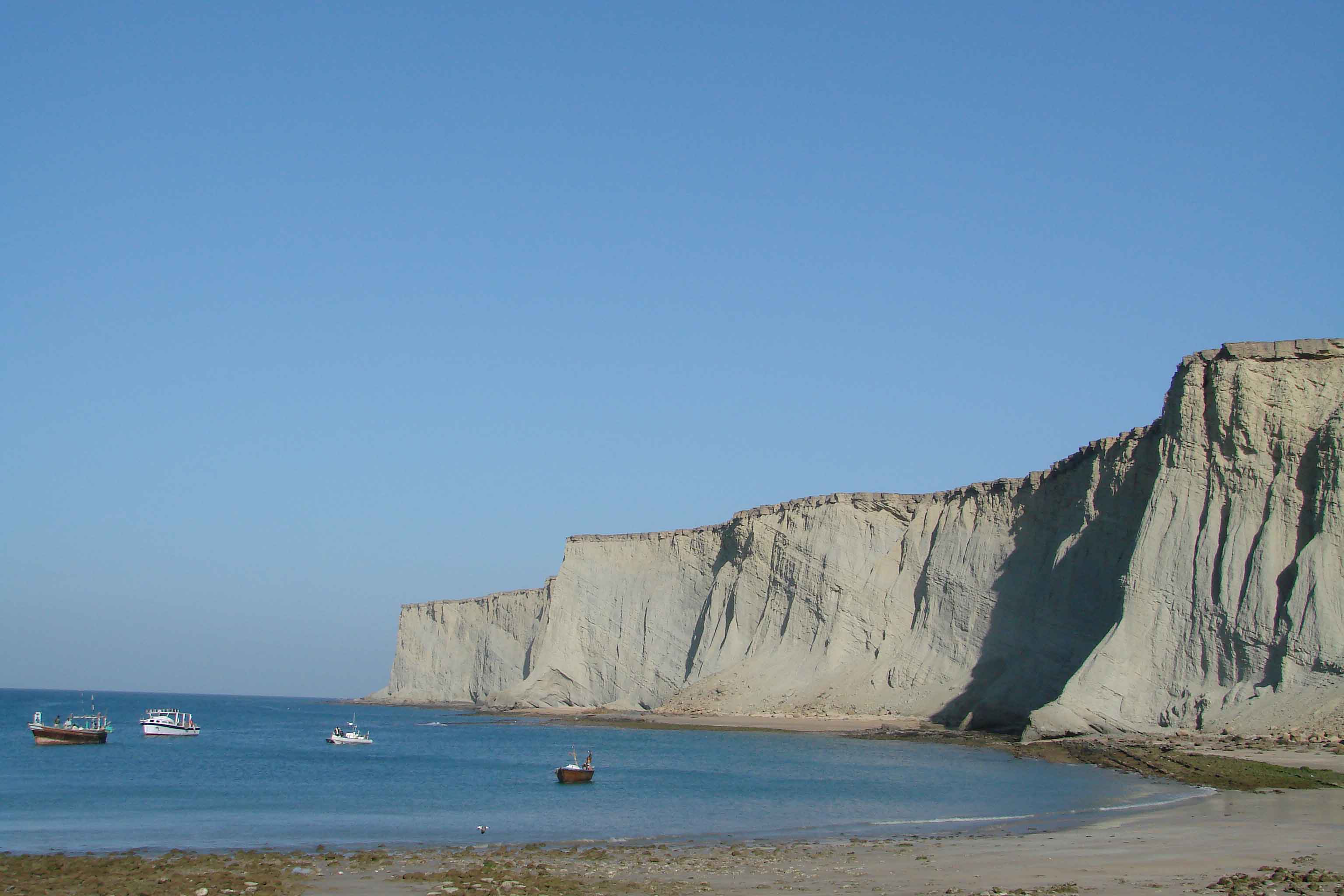Astola Island declared Pakistan’s first Marine Protected Area
For the first time in the history of Pakistan, Astola Island, located about 39 kilometres east of Pasni, Balochistan, in the Arabian Sea, has been declared the first dedicated Marine Protected Area (MPA) in the country.
Covering an area of about 400 square kilometers, Astola is considered the largest island along the coast of Pakistan, and the Balochistan government through a notification issued on Thursday declared it the first dedicated marine protected area of the country.

The Convention on Biological Diversity (CBD), to which Pakistan is a signatory, requires nations under Article 2 to designate, regulate and manage geographically defined areas (marine protected areas) to achieve the specific conservation objectives.
By declaring the Astola Island a marine protected area, Pakistan has started complying with the Aichi Target 11, which requires that by 2020 at least 17 percent of terrestrial and inland water areas and 10 percent of coastal and marine areas be conserved.
Many organisations, including the WWF-Pakistan, the IUCN and the Federal Ministry of Climate Change, congratulated the secretary of the Forest and Wildlife Department, Government of Balochistan, on taking proactive action and hoped that this step would help in protecting and conserving species, habitats and biodiversity that were under threat due to human activities.

Federal Secretary Climate Change Syed Abu Ahmad Akif appreciated Balochistan Chief Secretary Aurangzeb Haque and Forests and Wildlife Secretary Ali Imran for the efforts in getting the island and area around it declared a marine protected area, and said several other officials and people also played their role in this regard.
WWF-Pakistan’s technical adviser (Marine Fisheries) Muhammad Moazzam Khan said Astola Island was a biodiversity hotspot as many species of marine and terrestrial animals and plants were known to be found there.
The subspecies, Russel’s viper (Echis carinatus astolae), is an endemic species and a highly poisonous snake, which is reported only from this Island. The island is also a nesting area for many sea birds, especially the greater crested tern (Thalasseus bergii), which has thousands of nests on it.
The sandy beaches of Astola Island are also known for the nesting of green turtles. The ocean around it is also rich in marine biodiversity; 25 species of coral are known to be found around this island. The Arabian humpback whale, which is considered to be one of the rarest marine mammals, is also occasionally reported from the surrounding area.
The WWF-Pakistan official maintained that Astola Island’s new status would ensure that the biodiversity of the area was conserved, the use of deleterious fishing methods was banned and recreational activities were controlled.
It would also ensure that protected, threatened and endangered species such as crustaceans, coral, mammals, sharks, turtles, whales, and mobulids were conserved. Moreover, whale sharks, sunfish, guitarfish and seabirds would not be harvested or killed. “This will ensure conservation of these species whose population is drastically declining along the coast of Pakistan,” Khan added.
Rab Nawaz, senior director programmes of the WWF-Pakistan, appreciated the efforts of the secretary of the forest and wildlife department, Balochistan, and the minister and the secretary of the federal ministry of climate change to Astola Island declared a marine protected area.

“WWF considers the declaration and effective management of the marine protected area is aimed at protecting marine ecosystems, processes, habitats and species, which can contribute to the restoration and replenishment of resources for social, economic, and cultural enrichment.”
Nawaz said the WWF worked around the world to ensure that critical habitats were protected and restored, as well as continuing to provide multiple benefits to people and livelihoods. “WWF-Pakistan started working on collecting information about Astola Island in 1990 and published many reports on its biodiversity.”
Describing the Blochistan government’s decision as a historic milestone, IUCN Country Representative Mahmood Akhtar Cheema said that this could not have been achieved without the concerted efforts led by the secretary of the Ministry of Climate Change, the inspector general forests and other senior officials under the policy guidance provided by Federal Minister of Climate Change Zahid Hamid, who had put in tireless efforts towards building a consensus among the stakeholders and completing volumes of very complex formalities to make this happen. This designation may not have been possible without the support of the Government of Balochistan, especially the chief secretary, the additional chief secretary and the secretary of the forest & wildlife department and his team.

-
 'Euphoria' Star Eric Made Deliberate Decision To Go Public With His ALS Diagnosis: 'Life Isn't About Me Anymore'
'Euphoria' Star Eric Made Deliberate Decision To Go Public With His ALS Diagnosis: 'Life Isn't About Me Anymore' -
 Toy Story 5 Trailer Out: Woody And Buzz Faces Digital Age
Toy Story 5 Trailer Out: Woody And Buzz Faces Digital Age -
 Andrew’s Predicament Grows As Royal Lodge Lands In The Middle Of The Epstein Investigation
Andrew’s Predicament Grows As Royal Lodge Lands In The Middle Of The Epstein Investigation -
 Rebecca Gayheart Unveils What Actually Happened When Ex-husband Eric Dane Called Her To Reveal His ALS Diagnosis
Rebecca Gayheart Unveils What Actually Happened When Ex-husband Eric Dane Called Her To Reveal His ALS Diagnosis -
 What We Know About Chris Cornell's Final Hours
What We Know About Chris Cornell's Final Hours -
 Scientists Uncover Surprising Link Between 2.7 Million-year-old Climate Tipping Point & Human Evolution
Scientists Uncover Surprising Link Between 2.7 Million-year-old Climate Tipping Point & Human Evolution -
 NASA Takes Next Step Towards Moon Mission As Artemis II Moves To Launch Pad Operations Following Successful Fuel Test
NASA Takes Next Step Towards Moon Mission As Artemis II Moves To Launch Pad Operations Following Successful Fuel Test -
 GTA 6 Price Leaked Online Ahead Of Rockstar Announcement
GTA 6 Price Leaked Online Ahead Of Rockstar Announcement -
 Eric Dane Got Honest About His Struggle With ALS In Final Public Appearance: 'No Reason To Be In A Good Spirit'
Eric Dane Got Honest About His Struggle With ALS In Final Public Appearance: 'No Reason To Be In A Good Spirit' -
 Google AI Overviews And Mental Health: Why Experts Say It’s ‘very Dangerous’
Google AI Overviews And Mental Health: Why Experts Say It’s ‘very Dangerous’ -
 Prince Harry Issues A Statement For His 'incredible' WellChild Children
Prince Harry Issues A Statement For His 'incredible' WellChild Children -
 5 Famous Celebrities Who Beat Cancer
5 Famous Celebrities Who Beat Cancer -
 Spinosaurus Mirabilis: New Species Ready To Take Center Stage At Chicago Children’s Museum In Surprising Discovery
Spinosaurus Mirabilis: New Species Ready To Take Center Stage At Chicago Children’s Museum In Surprising Discovery -
 ByteDance Expands Artificial Intelligence Operations In US
ByteDance Expands Artificial Intelligence Operations In US -
 Angelina Jolie’s Breast Cancer Surgeon Appreciates Her For Calling Scars 'a Choice': 'They Are Choices To Survive'
Angelina Jolie’s Breast Cancer Surgeon Appreciates Her For Calling Scars 'a Choice': 'They Are Choices To Survive' -
 Detective Chief Inspector Reveals How Andrew Got Treated In Police Custody
Detective Chief Inspector Reveals How Andrew Got Treated In Police Custody



